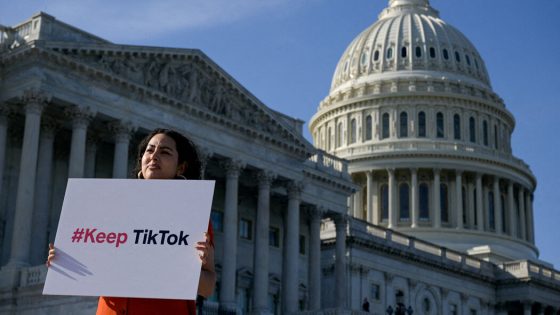Key Points
- Protesters in Israel have taken to the streets to demand the government secure the freedom of hostages held in Gaza.
- The bodies of six Israeli hostages taken during Hamas’ October 7 attack were recovered by the military on Sunday.
- Israeli labour leaders have called for a one-day general strike to pressure the government into reaching a ceasefire.
Pressure is mounting on Israeli Prime Minister Benjamin Netanyahu within Israel to bring back Israeli hostages still held by Hamas in Gaza, nearly 11 months since the militant group’s October 7 attack.
Hundreds of thousands of Israeli protesters have taken to the streets, while the head of Israel’s biggest labour union has called for a general strike, to demand a ceasefire deal that would lead to the remaining captives’ safe return.
Around 250 hostages were taken during the Hamas-led October 7 attack on southern Israel in which 1,200 people were killed, according to Israeli tallies.
Since then, Israel’s offensive has levelled much of Gaza. The Gaza health ministry says more than 40,700 Palestinians have been killed, and many of the enclave’s 2.3 million people have been displaced.
Over the weekend, Israel’s military said it had recovered the bodies of six hostages from a tunnel in southern Gaza where they were believed to have been killed not long before Israeli troops reached them, prompting fury and grief among Israelis.
Crowds estimated by Israeli media to number up to 500,000 strong demonstrated in Jerusalem, Tel Aviv and other cities on Sunday, demanding that Netanyahu do more.
Much of the frustration is with the country’s leadership for failing to secure a ceasefire deal that would free Israeli captives.
The Hostages Families Forum, which represents the families of some of those held in Gaza, said the death of the six was the direct result of Netanyahu’s failure to secure a deal to halt the fighting and bring their loved ones home.
Israeli protesters have demanded the country’s government reach a ceasefire deal with Hamas that leads to the immediate release of hostages. Source: AAP / Eyal Warshavsky/SOPA Images/Sipa USA
“They were all murdered in the last few days, after surviving almost 11 months of abuse, torture and starvation in Hamas captivity,” the group said in a statement.
“The delay in signing the deal has led to their deaths and those of many other hostages.”
The family of Carmel Gat, one of the hostages whose bodies were found, said they refused to speak to Netanyahu, and called on Israelis to join the protests.
“Take to the streets and shut down the country until everyone returns. They can still be saved,” Gat’s cousin, Gil Dickmann, wrote on social media platform X.
Since 7 October, 117 hostages have been returned alive to Israel. Four have been released by Hamas and eight have been rescued by the Israel Defence Forces.
The most recent hostage to be released was Qaid Farhan Alkadi, who was .
About a third of the more than 100 Israeli and foreign captives still in Gaza are , with the fate of the others unknown.
Israeli media estimates crowds of up to 500,000 people demonstrated in Tel Aviv, Jerusalem and other cities. Source: AAP / Ohad Zwigenberg/AP
Netanyahu and many hardliners in his government, as well as their supporters, remain opposed to any hostage deal that would release militants from Israeli prisons and help to keep Hamas in power.
Netanyahu said on Sunday that Israel was committed to concluding a hostage deal but he blamed Hamas for refusing to accept proposals agreed with the United States.
But others within Netanyahu’s government, such as Israeli defence minister Yoav Gallant, have urged Netanyahu to conclude a ceasefire deal with Hamas.
“It’s too late for the abductees who were murdered in cold blood. The abductees who remain in the captivity of Hamas must be returned home,” he said on X on Sunday.
“The political-security cabinet must convene immediately and reverse the decision made on Thursday,” he said, referring to a decision by the cabinet to insist on keeping troops in the so-called Philadelphi corridor, along the southern edge of the Gaza Strip.
Netanyahu’s insistence on keeping troops in the corridor to prevent Hamas from smuggling weapons in from Egypt, has been widely seen as one of the major obstacles to an agreement with Hamas in talks brokered by Egypt and Qatar.
‘Body bags instead of a deal’
The head of Israel’s trades union federation, Arnon Bar-David, called for a general strike on Monday to pressure the government into signing a deal, and said Ben Gurion airport, Israel’s main air transport hub, would be closed from 8am.
“We must reach a deal (on the return of the surviving hostages). A deal is more important than anything else,” Bar-David told a press conference.
“We are getting body bags instead of a deal.”
Municipal services in Israel’s economic hub Tel Aviv will also be shut for part of Monday.
Israeli Prime Minister Benjamin Netanyahu has blamed Hamas for delays in reaching a hostage deal. Source: AAP / Nir Elias/Pool/EPA
Israel’s Manufacturers’ Association said it backed the strike and accused the government of failing in its “moral duty” to bring the hostages back alive.
“Without the return of the hostages we will not be able to end the war, we will not be able to rehabilitate ourselves as a society and we will not be able to begin to rehabilitate the Israeli economy,” association head Ron Tomer said.
Israeli opposition leader and former prime minister Yair Lapid earlier threw his support behind the strike action.






